BBC News
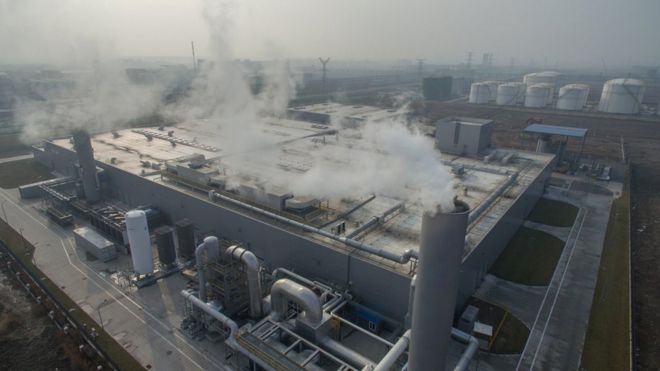 China has one of the largest chemical industries in the world
China has one of the largest chemical industries in the worldAmid tension between China and the US over trade, there's also friction over another issue -- the illegal trade in synthetic drugs.
Factory-produced opioids -- powerful painkillers increasingly abused by US citizens -- are being made in China and sold from there too.
One of the main ones is fentanyl -- 50 to 100 times stronger than morphine -- which is only approved in the US for severe pain arising in cases like treatment for cancer.
President Trump has called out China publicly.
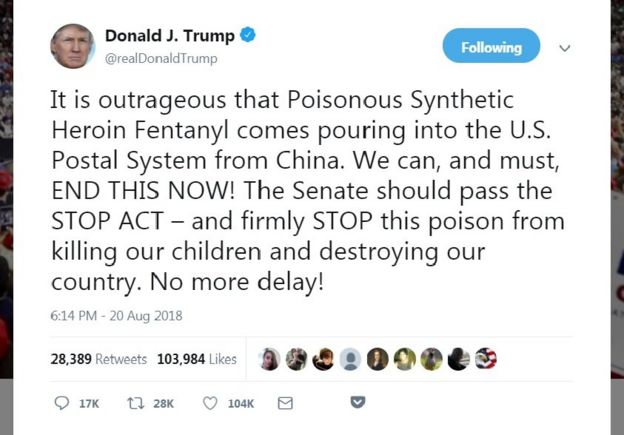
A senior Chinese official, Yu Haibin of the National Narcotics Control Commission, said the growing drug demand in the US as the real problem.
Dangerous chemicals
These Chinese synthetic drugs are cheap to make, are sold on the internet and sent to the US by post, either directly or via trafficking networks in Mexico.
On arrival at their destination they can be mixed in very small amounts with other drugs, especially heroin, to increase their potency.
"Fentanyl is lethal, even at very low levels. Ingestion of doses as small as 0.25mg can be fatal," states the US Drug Enforcement Agency (DEA).
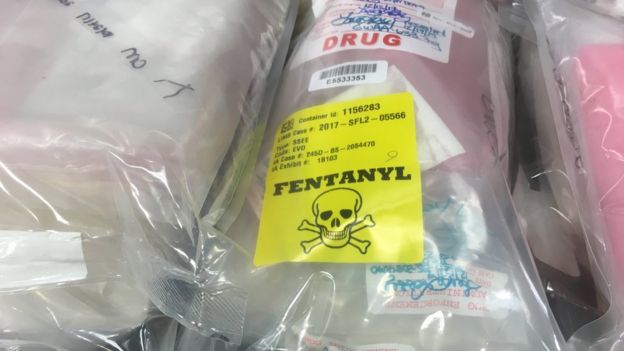
It's also relatively easy to alter its chemical structure to produce similar substances -- known as fentanyl analogues -- to bypass legal controls.
"The countless possibilities to create new compounds by small changes in chemical structures pose a growing challenge to international control of the opioid trade," states the UN Office for Drugs and Crime.
The US authorities are increasingly worried about opioid abuse, and have now put all fentanyl-related products into the most dangerous class of drugs.
In testimony before Congress, Assistant Secretary of State Kirsten Madison described the situation as the most "severe drug crisis" the US has ever faced.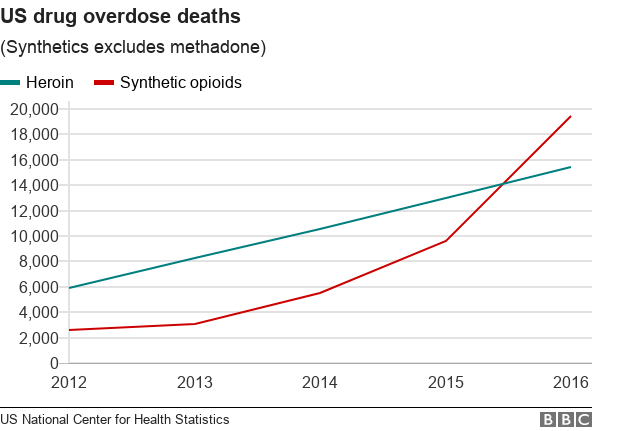
She said that in 2017, more than 40% of the 72,000 drug overdose deaths in the US involved Chinese synthetic opioids like fentanyl.
Health statistics from Canada show that last year, 72% of deaths related to opioid abuse were believed to involve fentanyl or related substances -- up from 55% in 2016.
Europe's drug monitoring agency the EMCDDA, which covers the EU plus Turkey and Norway, said in a report this year that "the number of Chinese synthetic opioids has grown rapidly in Europe since the first substance was reported in 2009".
In testimony before Congress, Assistant Secretary of State Kirsten Madison described the situation as the most "severe drug crisis" the US has ever faced.

She said that in 2017, more than 40% of the 72,000 drug overdose deaths in the US involved Chinese synthetic opioids like fentanyl.
Health statistics from Canada show that last year, 72% of deaths related to opioid abuse were believed to involve fentanyl or related substances -- up from 55% in 2016.
Europe's drug monitoring agency the EMCDDA, which covers the EU plus Turkey and Norway, said in a report this year that "the number of Chinese synthetic opioids has grown rapidly in Europe since the first substance was reported in 2009".
US officials are unequivocal that China is the main source for fentanyl and similar drugs.
In October 2017, the US authorities announced the first ever indictments against two Chinese individuals for conspiracy "to distribute large quantities" of fentanyl as well as other opioids.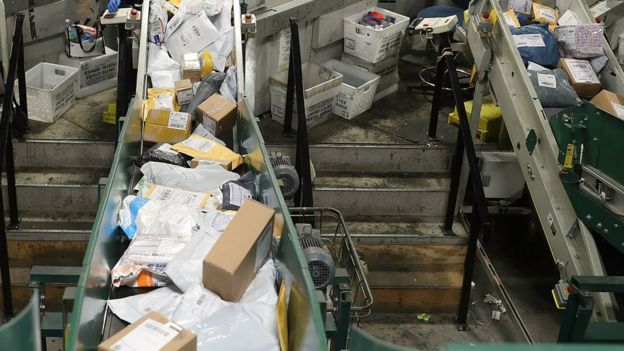
In October 2017, the US authorities announced the first ever indictments against two Chinese individuals for conspiracy "to distribute large quantities" of fentanyl as well as other opioids.

The US authorities say Chinese drugs are being shipped by mail
Katherine Pfaff, spokesperson for the US Drug Enforcement Agency, told the BBC that interceptions from the US postal system, information from people on the ground, and tracking cyber footprints, leads them to believe a "significant amount" comes from China.
The European drug monitoring agency report states: "It appears that most shipments of new fentanyls coming into Europe originate from companies based in China."
Katherine Pfaff, spokesperson for the US Drug Enforcement Agency, told the BBC that interceptions from the US postal system, information from people on the ground, and tracking cyber footprints, leads them to believe a "significant amount" comes from China.
The European drug monitoring agency report states: "It appears that most shipments of new fentanyls coming into Europe originate from companies based in China."
Regulation and corruption
But do the Chinese have a problem regulating their large and rapidly growing pharmaceutical industry?
Drugs policy expert at the Rand Corporation in the US, Bryce Pardo, describes their regulatory capacity as "limited".
"Gaps in regulatory design, the division of responsibility between provincial and central governments, and lack of oversight and government and corporate accountability, increase opportunities for corruption," he says.
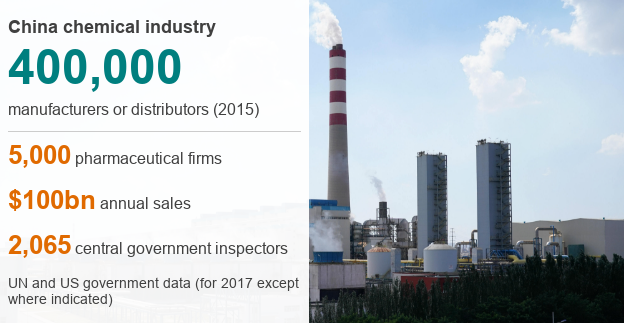
"I think it is fair to say that a lack of regulatory capacity, perhaps regardless of the letter of the law, certainly limits their ability to control the industry," says John Collins, head of the International Drug Policy Institute at the London School of Economics (LSE).

